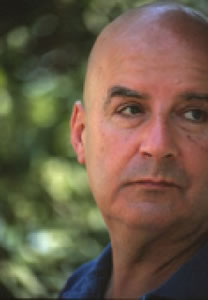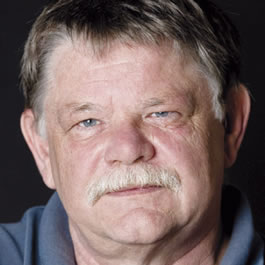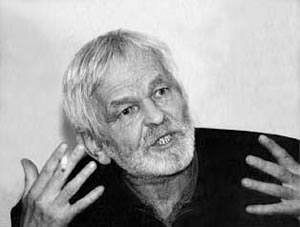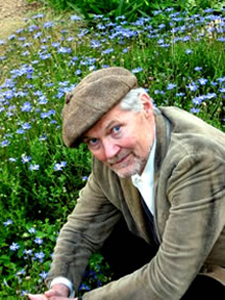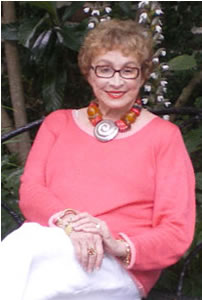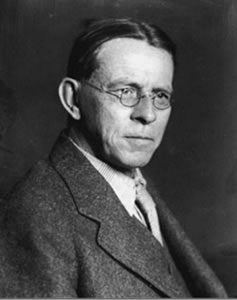De Nederlandse schrijver, essayist, columnist en vertaler Bas Heijne werd geboren op 9 januari 1960 in Nijmegen. Zie ook mijn blog van 9 januari 2008 en ook mijn blog van 9 januari 2009.
Uit: Alle vrees is als glas (Over de romans en verhalen van Frans Kellendonk)
„Maar juist dat scheppende element raakt wel eens uit zicht, door die lawine van invloeden en verwijzingen die de bewonderaars van Kellendonk over zijn werk laten gaan. Nog meer dan bij andere schrijvers houden critici zich bij het werk van Kellendonk bezig met de vraag waar het allemaal vandaan komt, in plaats van de vraag waar het eigenlijk naartoe wilde. Wie afgaat op al die artikelen en scripties moet soms wel de indruk krijgen van een sublieme legpuzzel, een glorieus soort Ministeck, ingenieus en eigenzinnig – maar het is toch verdomd moeilijk om te zeggen wat het nu eigenlijk voorstelt. Deze schrijver worstelde, onderstrepen ze, maar waarmee blijft meestal akelig abstract. Van zijn ‘ideeënmuziek’ krijg je dan alleen de partituur te zien. Horen doe je niets.
Dit heeft Kellendonk de reputatie bezorgd van een cerebraal, moeilijk toegankelijk schrijver. Niets is minder terecht. De bronnen van deze schrijver bevonden zich niet alleen in de bibliotheek, maar ook op straat. ‘Niets van wat ik schrijf is verzonnen,’ verklaarde Kellendonk vaak genoeg. Dat was een provocatie, omdat hij zelf ook wel wist dat hij de feiten en waargebeurde anekdotes in zijn boeken volledig opnieuw verzon.
Toch schuilt er veel waarheid in. Romans als Bouwval en Letter en geest zijn geschreven door een schrijver met een sardonisch oog voor menselijk gedrag, dat eerder aan de blik van Balzac doet denken dan aan die van Borges. Het personage A.W. Gijselhart is een directe nakomeling van de vrekkige vader van Eugenie Grandet. In de beroemde scène in Mystiek lichaam waarin Gijselhart zijn dochter Magda (alias Prul) op een etentje trakteert en de rekening probeert te betalen met een aftandse acculader, is het niet moeilijk een echo van de ironische verteller Elsschot te horen. De manier waarop Kellendonk de burgerlijke dooddoeners uit de monden van zijn personages een komisch eigen leven weet te geven (Bouwval: ‘Wat zielig,’ zuchtte [Aapje]. ‘Mensen gaan toch niet echt dood, hè Opa? Of tenminste niet helemaal?’ ‘Nou, reken maar van yes,’ zei Tante, onverwacht heftig) verraden de invloed van Gerard Reve.
Wie wil laten zien waarom de meeste romans en verhalen van Frans Kellendonk bijna negen jaar na zijn dood springlevend zijn, moet ze benaderen als fictie, niet als essayistiek. Hier wordt niets beweerd, hier wordt iets ervaren. Hoe scherp hij buiten zijn fictie de vragen ook formuleerde, zijn personages zijn geen abstracties. Wat Tsjechov beweerde, geldt ook voor Kellendonk: ‘Naar mijn mening is het niet de taak van de schrijver om problemen als God, pessimisme, enzovoort op te lossen. Het is eenvoudigweg zijn taak om te beschrijven wie, onder welke omstandigheden, wat zei over God of pessimisme.’ Dit werk is in laatste instantie een kleine comédie humaine. Alleen zadelt de schrijver zijn personages op met vragen en obsessies die het sociale ver overschrijden. Levend in een wereld waarvan het dak op instorten staat, moeten ze niet opboksen tegen maatschappelijke krachten, maar tegen een universum dat ieder moment zijn zinloosheid aan hen dreigt te openbaren.
Ze worden er alleen maar menselijker door. Het is de onmogelijke opdracht die zij van hun schepper meekrijgen – zich teweerstellen tegen isolement, verval en dood – die hen zo deerniswekkend levend maakt.“

Bas Heijne (Nijmegen, 9 januari 1960)
De Duitse schrijver Benjamin Lebert werd geboren op 9 januari 1982 in Freiburg im Breisgau. Zie ook mijn blog van 9 januari 2008 en ook mijn blog van 9 januari 2009.
Uit: Flug der Pelikane
»Warum denn?«, hatte ich gefragt.
»Ein klein bisschen mehr Freiheit. Er meinte, darauf kommt’s an, besonders an einem Tag in New York City.«
Bei Jimmy gab es nicht nur Pfannkuchen. Auf seiner Speisekarte standen über 150 Gerichte. Sie umfasste einfach alles, vom heißen Roastbeef mit geschmolzenem Mozzarella bis hin zum Deluxe-Burger für Vegetarier. Es gab den Hinweis: Breakfast all day, open seven days a week, free delivery. Eine ganze Seite widmete sich Jimmy’s famous creations, die Namen trugen wie Curios George und Notorious Nick. Wenn man nur diese Karte hatte, um sich ein Bild zu machen, sah man höchstwahrscheinlich eine ganze Heerschar von Kellnern und Köchen vor sich, die in weißen Schürzen herumwirbeln. Die Wahrheit sah anders aus. Jimmy’s Grill & Luncheonette in der 22sten Straße in Manhattan, zwischen sechster und siebter Avenue, war ein einziger, schwarz und weiß gekachelter Raum von höchstens 30 Quadratmetern, auf denen gekocht, gebraten, gegrillt, gegessen, gezahlt und geredet wurde. Die Wahrheit ist, es gab hier fünfzehnmal mehr Speisen als Sitzgelegenheiten. Exakt zehn Barhocker waren entlang der niedrigen, horizontal zum Eingang verlaufenden Theke aufgestellt, von der, egal, wie voll es gerade war, wie viele Pancake-Bestellungen durch die schwere Luft wirbelten und wie viele Bratkartoffeln gegenüber auf der verkrusteten Grillfläche lagen, immer eine angenehme Ruhe ausging. Diese blasse Theke, auf der ein paar Serviettenspender und Ketchup- und Senfflaschen aus Plastik platziert waren, vermittelte einem das Gefühl: »Setz dich hin, iss deine Eier. Was dann kommt, passiert sowieso.« Die Barhocker hatten silberne Gestelle und runde gepolsterte Sitzflächen, die mit schwarzem Kunstleder überzogen waren. Die Sitzflächen waren um 360° drehbar. Jimmy hatte darauf größten Wert gelegt. Das hatte mir der alte Francis, einer seiner drei Mitarbeiter, einmal erzählt. Mit seiner eindrucksvollen Stimme, die sich so anhörte, als hätte er Zeit seines Lebens immer wieder gegen die heftigsten Stürme anbrüllen müssen.
Aber mit diesem klein bisschen Freiheit war es, ehrlich gesagt, nicht so weit her. An der Theke sitzend konntest du dich genau genommen keinen Millimeter bewegen, ohne an das Knie deines Nebenmannes zu stoßen.“

Benjamin Lebert (Freiburg im Breisgau, 9 januari 1982)
De Franse schrijfster Simone de Beauvoir werd geboren op 9 januari 1908 in Parijs. Zie ook m
ijn blog van 9 januari 2007 en ook mijn blog van 9 januari 2008 en ook mijn blog van 9 januari 2009.
Uit: La Femme rompue
“« Chaque fois je crois avoir touché le fond. Et puis je m’enfonce plus loin encore dans le doute et le malheur. Luce Couturier s’est laissé avoir comme une enfant ; au point que je me demande si elle ne l’a pas fait exprès… Cette histoire dure depuis plus d’un an. Et Noëllie était avec lui à Rome en octobre ! Maintenant je comprends le visage de Maurice, à l’aérodrome de Nice : le remords, la honte, la crainte d’être découvert. On a tendance à se forger des pressentiments après coup. Mais là, je n’invente rien. J’ai flairé quelque chose puisque le départ de l’avion m’a arraché le cœur. On passe sous silence des gênes, des malaises pour lesquels on ne trouve pas de mots, mais qui existent.
En quittant Luce, j’ai marché longtemps, sans savoir où j’allais. J’étais hébétée. Je m’en rends compte maintenant : apprendre que Maurice couchait avec une autre femme ne m’a pas tellement étonnée. Ce n’est pas tout à fait au hasard que j’ai posé la question : Il y a une femme dans ta vie ? Sans être jamais formulée, vague et fugitive, l’hypothèse s’indiquait en creux, à travers les distractions de Maurice, ses absences, sa froideur. Il serait exagéré de dire que je m’en doutais. Mais enfin je ne suis pas tombée des nues. Tandis que Luce me parlait, je tombais, je tombais et je me suis retrouvée complètement brisée. Toute cette année, il faut que je la revoie à la lumière de cette découverte : Maurice couchait avec Noëllie. Il s’agit d’une longue liaison. Le voyage en Alsace que nous n’avons pas fait. J’ai dit : « Je me sacrifie à la guérison de la leucémie. » Pauvre idiote ! C’était Noëllie qui le retenait à Paris. Au moment de dîner chez Diana, ils étaient déjà amants et Luce le savait. Et Diana ? J’essaierai de la faire parler. Qui sait si cette affaire ne remonte pas encore plus loin ? Noëllie était avec Louis Bernard, il y a deux ans ; mais peut-être cumulait-elle. Quand je pense que j’en suis réduite à des hypothèses ! Et il s’agit de Maurice et de moi ! Tous les amis étaient au courant évidemment ! Oh ! Qu’importe ? Je n’en suis plus à me soucier du qu’en-dira-t-on ! Je suis trop radicalement anéantie. L’image qu’on peut se faire de moi, je m’en fous. Il s’agit de survivre.
« Rien n’est changé entre nous ! » Quelles illusions je me suis faites sur cette phrase. Voulait-il dire que rien n’était changé puisqu’il me trompait déjà depuis un an ? Ou ne voulait-il rien dire du tout ?
Pourquoi m’a-t-il menti ? Il me croyait incapable de supporter la vérité ? Ou il avait honte ? Alors pourquoi m’a-t-il parlé ? Sans doute parce que Noëllie était fatiguée de la clandestinité ? De toute façon ce qui m’arrive est affreux. »

Simone de Beauvoir (9 januari 1908 – 14 april 1986)
Hier met Jean Paul Sartre
De Nederlandse schrijver, columnist, scenarioschrijver en radiopresentator Theodor Holman werd geboren in Amsterdam op 9 januari 1953. Zie ook mijn blog van 9 januari 2009.
Uit: Theo, Theo
Ik opende de deur van het café
en zag hem staan: een provo, slank en blond.
Met inderdaad een cocktail aan zijn mond.
Het leek of hij het volle glas verslond.
Hij schreeuwde: “Vier cognac!” toen hij mij zag.
Kwam op mij af met brede gulle lach
en sprak: “Drink! Ik betaal het eindbedrag!”
Daarna: ” Ik ken je stukjes uit PC!”
Hij schoof mij twee cognac toe en riep : “Proost!”
Ad fundum ging glas ййn, daarna glas twee.
Ik had genipt. Daar zat Theo niet mee.
“Weer twee!” De kastelein knikte gedwee.
“Het drinken niet, de dronkenschap is troost.”
Maar wanneer kwam die “troost” , dat waanidee?

Theodor Holman (Amsterdam, 9 januari 1953)
Hier met Theo van Gogh en Katja Schuurman
De Noordierse schrijver en journalist Danny Morrison werd geboren op 9 januari 1953 in Belfast. Zie ook mijn blog van 9 januari 2009.
Uit: A Wooden Heart
„The boy was sitting on the small wall, a few feet opposite Stan who was on the steps of his backdoor tuning the strings on his guitar. The boy dragged his eyes away from Stan and looked down the rows of disordered back gardens through a composite haze of insects, then over the roofs of Bearnagh Drive, behind which was the Horsey Field where he caught bees in jam jars on sunny days.
Above the Horsey a circling bird high in the sky reminded the child of the westerns he had seen on his granny’s television. Vultures hovering, thought the boy, meant that they had spotted down below, in a canyon full of rattlesnakes, a lonely cowboy bleeding to death from bullet holes or dying of thirst because his canteen was empty or been sabotaged.
To the boy’s mind came motley impressions from the various films he had seen. The cowboy hadn’t eaten in days, had been looking forward to his first bath in three years, and had smashed his last bottle of liquor against a rock because he was trying to stop drinking and it was muddling his thinking. He was lying against a tree, seeing things in double and treble and talking to himself. And he was seeing Beth, his girlfriend from the saloon. He had just been double-crossed by a sleeked, so-called partner who had climbed on his horse and laughed before riding off with the cowboy’s only boots tied to his saddle and stolen his share of the gold. To crown things off the traitor said he was going to marry Beth and the cowboy banged his head against a tree shouting Oh no! and what he wasn’t going to do about if when he got out of this fix.
A Wells Fargo stagecoach, if this was the same film, didn’t know the cowboy was in just the next canyon and this was very sad and potentially the end of the story because the stagecoach only went through once a week. Every Thursday, to be precise, maam, said the driver to a woman in the back when she asked. In yet another canyon the cowboy’s horse was snorting like mad and looking for him but couldn’t smell him. The horse was limping because it had stood on a big cactus which the boy thought was poisonous and maybe slow-acting so time was running out.”

Danny Morrison (Belfast, 9 januari 1953)
Zie voor nog meer schrijvers van de 9e januari ook mijn twee vorige blogs van vandaag.

